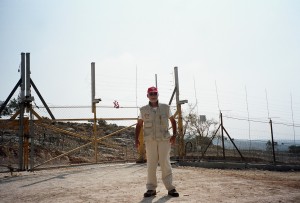LESSONS FROM DISASTERS
rn
rn
Tad Mitsui
rn
rn
A major disaster is still unfolding before our eyes in the media daily. But this time it is in a developed rich country – the United States of America, as a result of Hurricane Katrina. Even the richest country in the world is not spared from the fury of nature. What do we learn from disasters?
rn
The 2004 Boxing Day Tsunami in South East Asia is the worst known natural disaster in human history. The number of confirmed deaths is estimated to be roughly 310,000 – 220,000 in Indonesia alone. >From my experience working as the coordinator of famine relief for the World Council of Churches (WCC) during the African famine caused by unprecedented drought in the 1980s, I would like to list some lessons learned from the Tsunami tragedy, which might also be applicable in the aftermath of Hurricane Katrina. In the ’80s, I was based in Geneva, Switzerland and was trying to put some order into the relief work being done by the churches around the world. I traveled extensively in 23 African countries that were experiencing food shortage as a result of the drought. From this perspective, I came up with the following list of lessons I learned about disaster relief.
rn
1. People are basically good and willing to help when and where there is a need. Amid all the calamities of death and strife, there is hope in the world. Outpouring of goodwill and sympathy through monetary donations and gifts in-kind were overwhelming. Shortage of money is not a problem. For example, in 1984 the WCC initially set $100 million as the target for fund-raising. By the time the church agencies got together in Dakar, Senegal in 1986 for an interim review, the WCC community had raised more than $500 million in two years.
rn
2. Natural disasters are not exactly "acts of God," as the insurance industry terms them. It is not correct to term natural disasters ‘beyond our control.’ Money still helps to diminish their effects. Jesus did say, "God the Father makes the sun rise on the evil and the good, and sends rain on the righteous and on the unrighteous." Rains fall on the poor and the rich alike. But the rich have umbrellas. In other words, the rich can afford to pay for the prevention of disasters and recovery from destruction. But poor people cannot afford these things. For example, the North Pacific has a Tsunami warning system, because it touches two of the richest countries in the world – Japan and the United States. Poor countries in the South Pacific cannot afford to spend billions of dollars for something that may or may not happen for decades. Even in a rich country like the United States, the poor, mostly African Americans, are the ones who were left behind without food and water and many of whom died, because they could not afford to evacuate to a safe place. Three decades ago, a devastating earthquake struck the Southern United States and Central America. In Nicaragua alone, several thousand people died. The same earthquake with the same ferocity struck the San Fernando Valley in California, where only several persons were killed, because of better-built housing and a better preparedness system.
rn
3. Money is always better than gifts-in-kind as a response to disaster. Money is flexible and thus more efficient and, in the end, cheaper. Best of all, it encourages local economy through the purchase of local products. It delivers more appropriate goods, thus bringing about a quicker recovery and return to self-sufficiency. The United States could easily have provided emergency food and other non-food necessities in Louisiana had infrastructure and organization been in place. Gifts in-kind such as food, medicine, and clothes or volunteers cost money in transportation and other administrative procedures. Gifts in-kind are good for the economy of donor countries, while monetary gifts enable self-help. Monetary gifts help maintain the dignity of victims. We forget that receiving charity is humiliating. External help should always enable and facilitate self-help programs for the victims.
rn
4. Competent relief organizations require money to maintain their staff and infrastructure. People often demand that their donation go directly to the victims, but it is unrealistic to demand delivery of 100% of your gifts to the victims. While you demand delivery of the donation without overhead, you want your gifts administered competently. It is totally unrealistic to expect unpaid volunteers to run an organization and pay for medical doctors, accountants, logistics officers, technicians and engineers, and the means of transportation such as boats, planes, and trucks. Good organizations always have excellent and skilled experts on the staff. We must eliminate the myth about not spending money for overhead. Of the funds raised for relief, we must expect 25 – 30 % to be budgeted for overhead.
rn
The churches that are connected to the World Council of Churches have a system called Action of the Churches Together (ACT based in Geneva. ACT is not well known, partly because it does not spend money on advertising. Its approach to relief is to enable the indigenous churches and organizations to do relief. Foreign intervention is limited to a minimum. This is why ACT has very low overhead.
rn
5. The most important and yet neglected part of disaster relief is persistence. Unfortunately, this is where most of past relief efforts have failed. People forget soon and do not fulfill their commitments or follow up with the necessary course of action. Many pledges are not fulfilled when the interest of the public wanes. Donations fall rapidly after several months, and people soon tire of hearing sad stories of the victims. If we are to help those affected to be prepared for future disasters, follow-up actions in terms of rehabilitation, reconstruction, and development are very important. When the public loses interest, governments can afford to renege on their pledges. The disaster of the Bam earthquake in Iran is now long forgotten, and pledges are not even half fulfilled. That was only a few years ago.
rnrn
6.The best scenario is that, as a result of external help, the victims will not need outside help in future disasters. India declined external assistance. Normally, rich countries do not ask for foreign disaster relief. It is not only a matter of need fulfilled, but it has to do with our most important values – our dignity. This is why Hurricane Katrina is a great embarrassment and humiliation for the United States. It exposed the Third World nature of the underclass in the richest country in the world. We who live in a rich country do not understand the humiliation of having to receive charity. We must strive to create a world where every human person can help him/herself. That is how God created us.
rn India declined external assistance. Normally, rich countries do not ask for foreign disaster relief. It is not only a matter of need fulfilled, but it has to do with our most important values – our dignity. This is why Hurricane Katrina is a great embarrassment and humiliation for the United States. It exposed the Third World nature of the underclass in the richest country in the world. We who live in a rich country do not understand the humiliation of having to receive charity. We must strive to create a world where every human person can help him/herself. That is how God created us.rn
7.The death toll due to natural disasters is far less than that caused by war. The Tsunami in Southeast Asia, the natural calamity known as the worst in history, killed perhaps at most 310,000 people. But over 200,000 died in a split second as the result of the two atomic bombs dropped on Hiroshima and Nagasaki in 1945. All together, according to Wikipedia free encyclopedia, about fifty million people died during the four years of the Second World War, including six million Jews. Thirty millions were non- combatants. Millions have died since in military conflicts, though there has not been another world war. Human being are our own worst enemies, not nature. Yet, how much money do we spend for peace? A pittance. It is shameful. We must spend more energy resolving conflict in the world.
rnThe Tsunami in Southeast Asia, the natural calamity known as the worst in history, killed perhaps at most 310,000 people. But over 200,000 died in a split second as the result of the two atomic bombs dropped on Hiroshima and Nagasaki in 1945. All together, according to Wikipedia free encyclopedia, about fifty million people died during the four years of the Second World War, including six million Jews. Thirty million were non- combatants. Millions have died since in military conflicts, though there has not been another world war. Human being are our own worst enemies, not nature. Yet, how much money do we spend for peace? A pittance. It is shameful. We must spend more energy resolving conflict in the world.rn
I am not touching on the question of poverty. I strongly suspect that the death toll from poverty is even more devastating than from war.
rnrn
Tad Mitsui is a retired United Church minister living in Lethbridge, Alberta.
rnrn
rn


